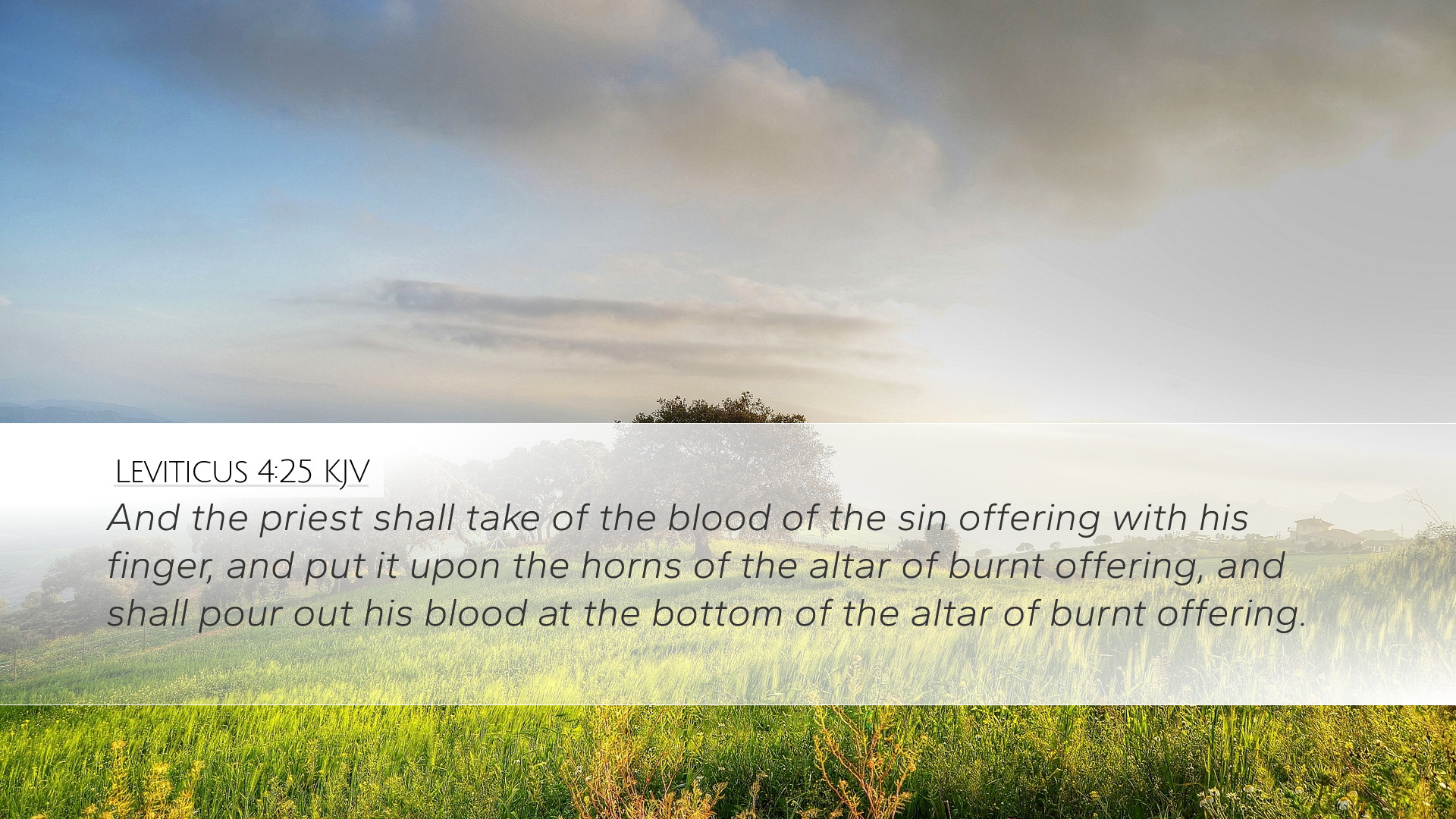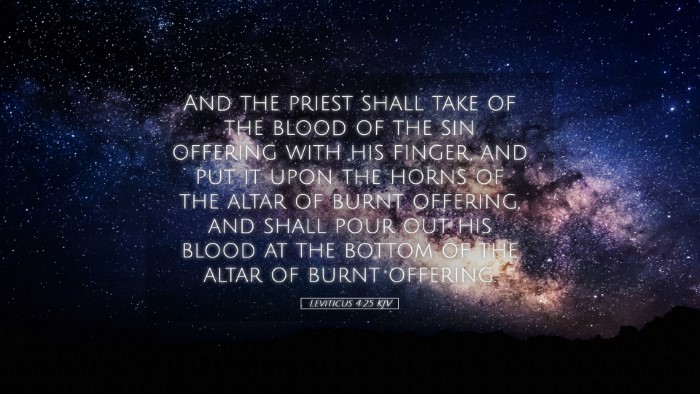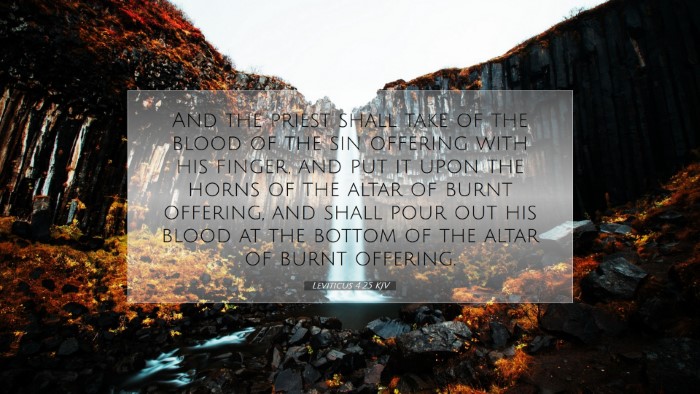Commentary on Leviticus 4:25
Leviticus 4:25 states: "And the priest shall take some of the blood of the sin offering with his finger, and put it on the horns of the altar of burnt offering; and the remainder of the blood shall he pour out at the base of the altar of burnt offering." This verse is part of the larger context concerning the ritual for sin offerings, and it emphasizes the seriousness of sin as well as the means of atonement through prescribed ceremonial practices.
Understanding Sin Offerings
In Leviticus, God provides instructions for various offerings that express repentance, thanksgiving, and the acknowledgment of human sinfulness. The sin offering detailed in Leviticus 4 specifically addresses unintentional sins committed by individuals or the community.
- Matthew Henry remarks that sin, even when unintentional, requires atonement, and the specific actions prescribed in the law highlight the importance of recognizing our transgressions.
- Albert Barnes draws attention to the symbolism of the blood, noting that it represents life and is integral to the atonement process; it is through this act of offering that one reconciles with God.
- Adam Clarke emphasizes the role of the priest as an intermediary between God and the people, fulfilling the divine ordinance to restore the relationship disrupted by sin.
The Role of the Priest
In this sacrificial system, the priest not only performs the act of sacrifice but also serves as a mediator. The verse indicates that the priest takes the blood and applies it to the altar's horns, signifying a purification that is essential for maintaining holiness within the community.
Matthew Henry elaborates that the act of placing blood on the altar is an expression of faith and obedience to God's commands, highlighting the priest's role in facilitating worship and intercession.
Albert Barnes states that the horn of the altar symbolized strength and safety; thus, the blood applied there represents the assurance that through the atonement, the offeror receives forgiveness and protection against judgment.
The Significance of the Blood
The pouring out of the remaining blood at the base of the altar serves several purposes. It illustrates the completeness of the sacrifice and emphasizes that the life of the offering has been surrendered entirely to God.
- Adam Clarke points out that this act also serves to publicly denote the seriousness of sin and the necessity of atonement within the community of faith.
- Matthew Henry concludes that the regular practice of such offerings kept the congregation aware of their need for cleansing and their dependence on God's mercy.
Theological Implications
This passage has profound implications for understanding sin, sacrifice, and atonement in the broader biblical narrative, leading ultimately to the atoning work of Christ. Just as the blood of the sin offering served to cover the sins of the people, so too does the blood of Jesus offer eternal redemption.
Albert Barnes affirms that the sacrificial system points toward Christ, establishing a framework within which believers can understand the nature of sin and the necessity of a savior.
Adam Clarke also highlights that the ritualistic elements of the sin offering represent deeper theological truths—the need for repentance, faith, and the transformative power of God’s grace through Christ’s sacrifice.
Practical Applications
For pastors and teachers, the insights from Leviticus 4:25 encourage a renewed focus on the seriousness of sin in teaching and discipleship. The communal aspect of sin indicates that individuals should not isolate their relationship with God, as sin affects the entire body of Christ.
Students of theology should note the continuity between the Old Testament sacrificial system and New Testament teachings on repentance and the efficacy of Christ's sacrifice. This understanding enhances Christian doctrine concerning sin, grace, and redemption.
In application, believers are reminded to evaluate their lives for unintentional sins and take steps toward reconciliation with God, much as the Israelites did with the sin offerings. God desires a heart of repentance over mere ritual.


